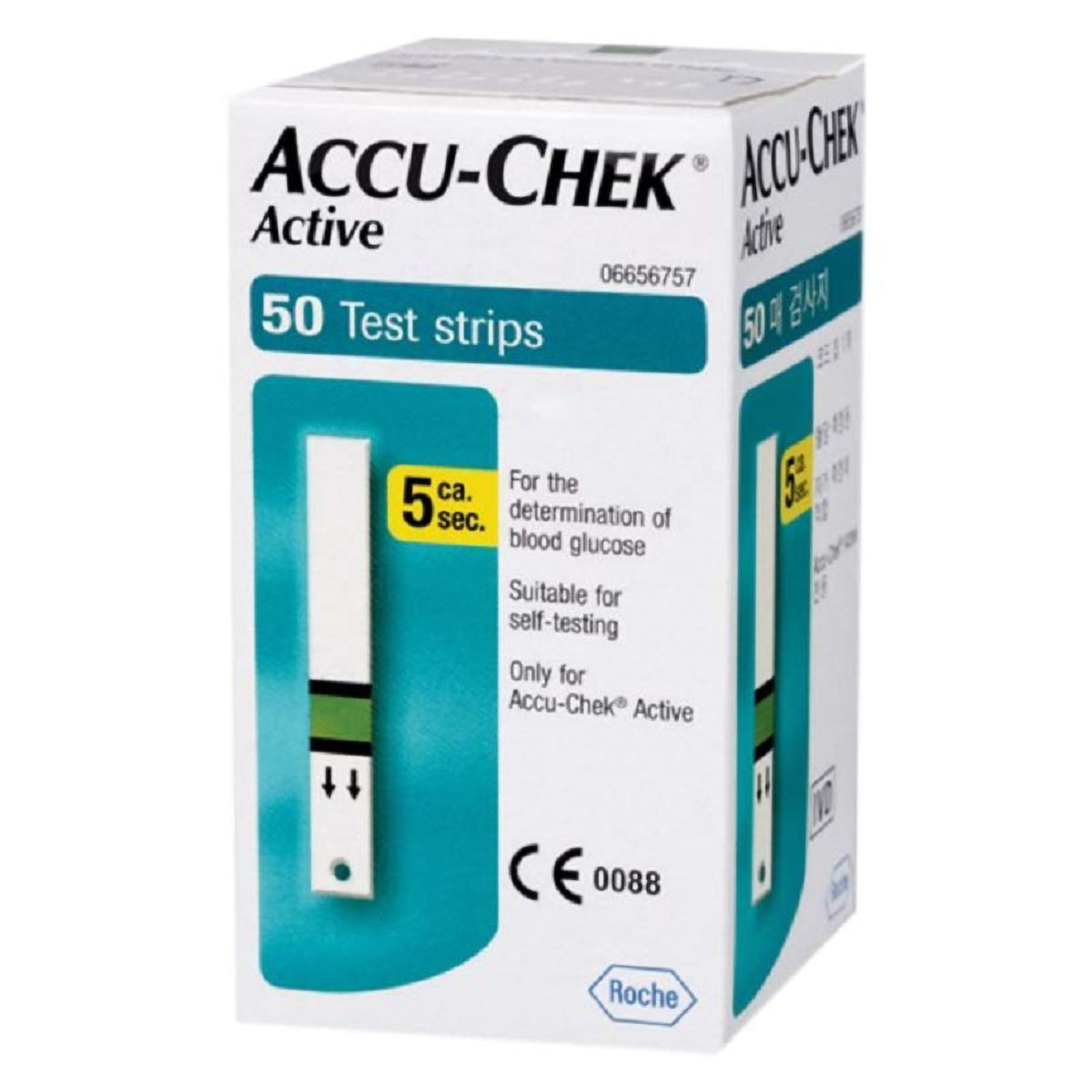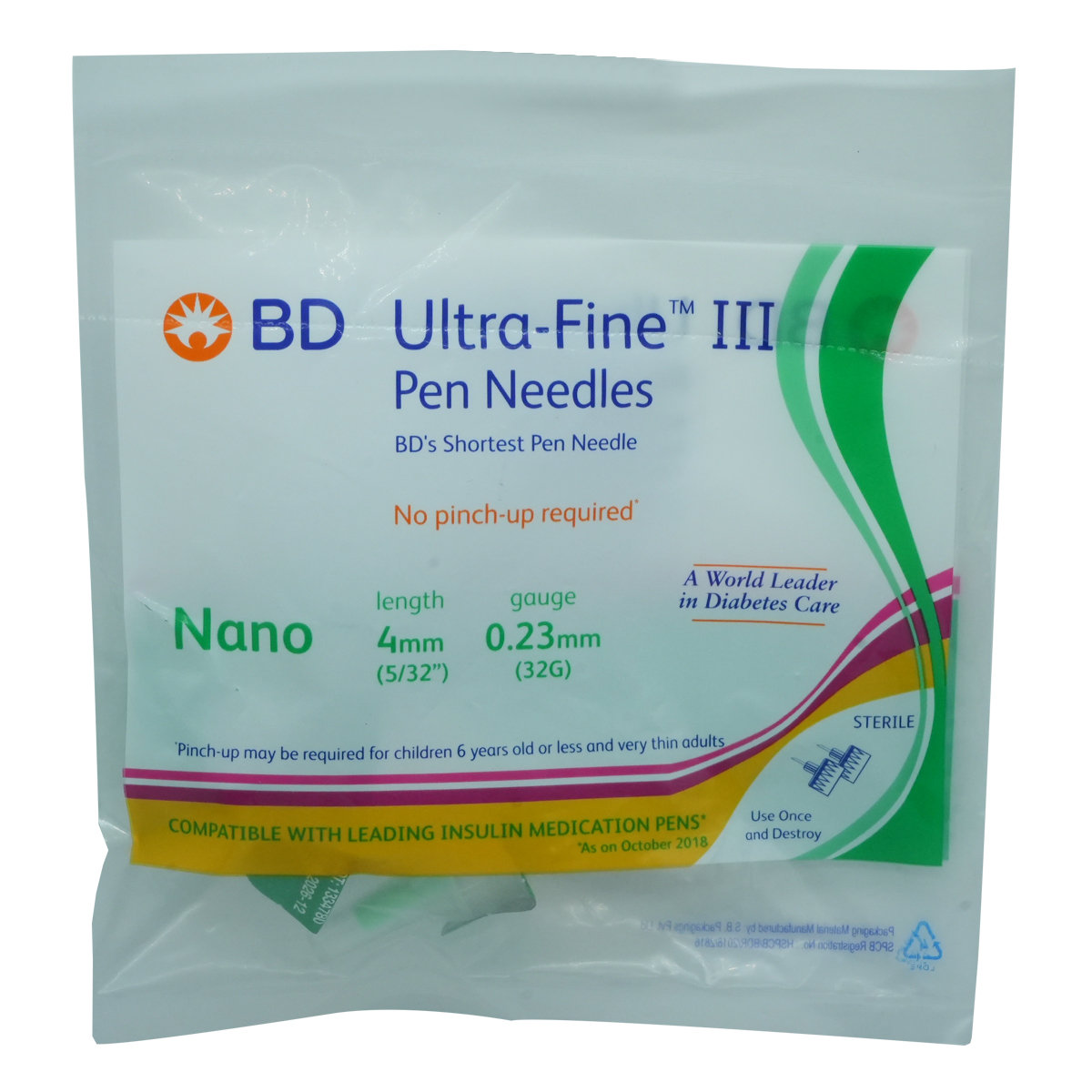Levemir 100IU/ml Flexpen 3 ml


MRP ₹1594.5
(Inclusive of all Taxes)
₹191.3 Cashback (12%)
know your delivery time
Provide Delivery Location
Composition :
Manufacturer/Marketer :
Consume Type :
Expires on or after :
Return Policy :

Secure Payment

Trusted by 8 Crore Indians

Genuine Products
Therapeutic Class
Country of origin
Manufacturer/Marketer address
Disclaimer
Alcohol
Safe if prescribed
You are recommended not to consume alcohol along with Levemir 100IU/ml Flexpen 3 ml to avoid unpleasant side-effects. Alcohol may either decrease or increase the blood sugar level which can be fatal.
Pregnancy
Consult your doctor
Levemir 100IU/ml Flexpen 3 ml can be used during pregnancy. Your insulin dose may need to be changed during pregnancy and after delivery.
Breast Feeding
Consult your doctor
Levemir 100IU/ml Flexpen 3 ml can be given safely to nursing mothers but only under the supervision of a physician.
Driving
Safe if prescribed
Drive with caution, Levemir 100IU/ml Flexpen 3 ml usually causes drowsiness and affects driving ability. Your ability to concentrate and react may be reduced if you have hypoglycemia (low blood sugar)
Liver
Consult your doctor
Levemir 100IU/ml Flexpen 3 ml to be taken with caution, especially if you have a history of liver diseases/conditions. The dose may have to be adjusted by your doctor.
Kidney
Consult your doctor
Levemir 100IU/ml Flexpen 3 ml to be taken with caution, especially if you have a history of kidney diseases/conditions. The dose may have to be adjusted by your doctor.
Children
Safe if prescribed
Levemir 100IU/ml Flexpen 3 ml can be given safely to children provided, it is prescribed by a child specialist.
Keep Refrigerated. Do not freeze.Prepaid payment required.
About Levemir 100IU/ml Flexpen 3 ml
Levemir 100IU/ml Flexpen 3 ml is long-acting insulin analogue which belongs to the category of medicines called 'anti-diabetic' primarily used for the management and treatment of type 1 and type 2 diabetes, especially in persons whose sugar levels are too high and cannot be only controlled by dieting and exercising. It is used to improve the sugar levels in blood in persons dealing with diabetes mellitus in both children (above 2 years of age) and adults. Diabetes occurs when the body does not produce enough insulin to control the level of blood sugar. It is a condition in which blood glucose levels are above average. Insulin is the hormone that controls sugar levels in your blood.
Levemir 100IU/ml Flexpen 3 ml contains Insulin Detemir as its active ingredient. It is a recombinant human insulin analogue that is equipotent to regular human insulin. It works by replacing the natural insulin produced by the body and helps in moving sugar from the blood to different body tissues where it is used as energy. Levemir 100IU/ml Flexpen 3 ml has a more rapid onset of action and a long duration of action up to 24 hours of basal insulin coverage. Treatment with Levemir 100IU/ml Flexpen 3 ml helps to prevent complications from your diabetes.
Your doctor will advise you on how to use the Levemir 100IU/ml Flexpen 3 ml. It should be administered at least 0-15 minutes before or soon after meals. The common side effects of Levemir 100IU/ml Flexpen 3 ml are hypokalaemia (low potassium levels), hypoglycemia (low blood sugar levels), local injection site reactions like lipodystrophy (fat deposition under the skin), rash, and pruritus (itch skin). Most of these side effects of Levemir 100IU/ml Flexpen 3 ml do not require medical attention and gradually resolve over time. However, if the side effects are persistent, reach out to your doctor.
Do not skip any doses or stop taking Levemir 100IU/ml Flexpen 3 ml suddenly without consulting your doctor. Consult your doctor before taking Levemir 100IU/ml Flexpen 3 ml if you are pregnant or breastfeeding. Levemir 100IU/ml Flexpen 3 ml should not be given to children below 10 years. Avoid alcohol consumption while taking Levemir 100IU/ml Flexpen 3 ml as it might increase side-effects. Levemir 100IU/ml Flexpen 3 ml may cause hypoglycaemia, so drive only if you are alert. Inform your doctor about all the medications you are taking and your health condition to rule out any unpleasant side effects.
Uses of Levemir 100IU/ml Flexpen 3 ml
Medicinal Benefits Mweb
Key Benefits
Levemir 100IU/ml Flexpen 3 ml belongs to the category of the anti-diabetic drug, indicated in the treatment of type 1 and type 2 diabetes . This medicine is primarily prescribed to people whose blood sugar levels are high and is not even controlled by diet and exercise alone. Levemir 100IU/ml Flexpen 3 ml is a fast-acting form of insulin that helps lower blood sugar levels after the intake of food. It helps in improving the glycaemic control, which in turn decreases the risk of progression of complications of diabetes like damage of retina (retinopathy), damage of kidney (nephropathy), damage of nerve cells (neuropathy), delayed wound healing, diabetic foot ulcer, and others.
Directions for Use
Side Effects of Levemir 100IU/ml Flexpen 3 ml
- Local injection site reactions (such as reddening, unusually intense pain on injection, itching, hives, swelling, or inflammation)
- Hypoglycemia (low blood sugar levels)
- Hypokalaemia (low potassium levels)
- Lipodystrophy (fat deposition under the skin)
- Rash
- Pruritus (itchy skin)
Drug Warnings
Do not take or stop this medicine, if the doctor did not advise you to do so. Brief your medical history to doctor if you have any heart, kidney or liver diseases, low blood sugar (hypoglycaemia), and low potassium levels in the blood (hypokalaemia) before starting Levemir 100IU/ml Flexpen 3 ml. Do not share an injection pen, cartridge, or syringe with another person, even if the needle is changed. Do not inject Levemir 100IU/ml Flexpen 3 ml daily at the same injection site since it may cause skin changes, such as lumps under the skin. Do not drive or operate machinery if you experience blurred vision, dizziness or drowsiness due to extremely low or high blood sugar. It is advised to avoid your alcohol intake while using Levemir 100IU/ml Flexpen 3 ml to avoid low blood sugar levels further. Pregnant and breastfeeding women should consult their doctor before starting this medication. Levemir 100IU/ml Flexpen 3 ml can be given safely to children provided, it is prescribed by a child specialist.
Drug-Drug Interactions
Drug-Drug Interactions
Login/Sign Up
Co-administration of Gatifloxacin with Levemir 100IU/ml Flexpen 3 ml may sometimes affect blood glucose levels. Both low blood glucose and, less frequently, high blood glucose have been reported.
How to manage the interaction:
Although there is a possible interaction, Levemir 100IU/ml Flexpen 3 ml can be taken with Gatifloxacin if prescribed by the doctor. Consult the prescriber if you experience symptoms such as nervousness, confusion, headache, dizziness, drowsiness, tremors, nausea, hunger, weakness, perspiration, palpitation, rapid heartbeat, increased urination, increased thirst, and increased hunger. Maintaining blood glucose levels is advised. Do not discontinue any medications without a doctor's advice.
Co-administration of Gemifloxacin and Levemir 100IU/ml Flexpen 3 ml can have an impact on blood sugar levels. There have been reports of both hyperglycemia (high blood sugar) and, less frequently, hypoglycemia (low blood sugar).
How to manage the interaction:
Although taking Gemifloxacin and Levemir 100IU/ml Flexpen 3 ml together can possibly result in an interaction, it can be taken if a doctor has prescribed it. However, consult a doctor, if you experience headaches, dizziness, sleepiness, anxiety, disorientation, tremors, nausea, hunger, weakness, sweat, palpitations, and rapid heartbeat, increased hunger, thirst, and urine. It is recommended to maintain blood glucose levels. Do not discontinue any medications without a doctor's advice.
Co-administration of Sparfloxacin and Levemir 100IU/ml Flexpen 3 ml can have an impact on blood sugar levels. There have been reports of both hyperglycemia (high blood sugar) and, less frequently, hypoglycemia (low blood sugar).
How to manage the interaction:
Although taking Sparfloxacin and Levemir 100IU/ml Flexpen 3 ml together can possibly result in an interaction, it can be taken if a doctor has prescribed it. However, consult a doctor, if you experience headaches, dizziness, sleepiness, anxiety, disorientation, tremors, nausea, hunger, weakness, sweat, palpitations, rapid heartbeat, increased -hunger, thirst, and urine. It is recommended to maintain blood glucose levels. Do not discontinue any medications without a doctor's advice.
Taking Moxifloxacin with Levemir 100IU/ml Flexpen 3 ml may affect blood sugar levels which may cause hypoglycemia (low blood sugar) and hyperglycemia (high blood sugar).
How to manage the interaction:
Although taking Moxifloxacin and Levemir 100IU/ml Flexpen 3 ml together can possibly result in an interaction, it can be taken if a doctor has prescribed it. However, consult a doctor, if you experience headaches, dizziness, and rapid heartbeat, increased- thirst, and urine. Do not discontinue any medications without a doctor's advice.
Co-administration of Norfloxacin and Levemir 100IU/ml Flexpen 3 ml can have an impact on blood sugar levels. There have been reports of both hyperglycemia (high blood sugar) and, less frequently, hypoglycemia (low blood sugar).
How to manage the interaction:
Although taking Norfloxacin and Levemir 100IU/ml Flexpen 3 ml together can result in an interaction, it can be taken if a doctor has prescribed it. However, consult a doctor, if you experience headaches, dizziness, sleepiness, anxiety, disorientation, tremors, nausea, hunger, weakness, sweat, palpitations, and rapid heartbeat, increased-hunger, thirst, and urine. It is recommended to maintain blood glucose levels. Do not discontinue any medications without consulting a doctor.
Co-administration of Cinoxacin and Levemir 100IU/ml Flexpen 3 ml can have an impact on blood sugar levels. There have been reports of both hyperglycemia (high blood sugar) and, less frequently, hypoglycemia (low blood sugar).
How to manage the interaction:
Although taking Cinoxacin and Levemir 100IU/ml Flexpen 3 ml together can possibly result in an interaction, it can be taken if a doctor has prescribed it. However, consult a doctor, if you experience headaches, dizziness, sleepiness, anxiety, disorientation, shaking, nausea, hunger, weakness, sweat, palpitations, and rapid heartbeat, increased hunger, increased thirst, and increased urine. Do not discontinue any medications without a doctor's advice.
Co-administration of Trovafloxacin and Levemir 100IU/ml Flexpen 3 ml can have an impact on blood sugar levels. There have been reports of both hyperglycemia (high blood sugar) and, less frequently, hypoglycemia (low blood sugar).
How to manage the interaction:
Although taking Trovafloxacin and Levemir 100IU/ml Flexpen 3 ml together can possibly result in an interaction, it can be taken if a doctor has prescribed it. However, consult a doctor, if you experience headaches, dizziness, sleepiness, anxiety, shaking, nausea, hunger, weakness, sweat, palpitations, rapid heartbeat, increased -hunger, thirst, and urine. It is recommended to maintain blood glucose levels. Do not discontinue any medications without a doctor's advice.
Co-administration of Ofloxacin and Levemir 100IU/ml Flexpen 3 ml can sometimes affect blood glucose levels.
How to manage the interaction:
Although combining Ofloxacin and Levemir 100IU/ml Flexpen 3 ml can lead to an interaction, they can be taken on a doctor's advice. If you experience any symptoms such as headache, dizziness, sleepiness, nervousness, confusion, shaking, nausea, hunger, weakness, sweat, palpitation, and rapid heartbeat, increased -thirst, hunger, and urination, consult a doctor. Maintain your blood glucose levels. Do not discontinue any medications without consulting a doctor.
Co-administration of Nalidixic acid and Levemir 100IU/ml Flexpen 3 ml can have an impact on blood sugar levels. There have been reports of both hyperglycemia (high blood sugar) and, less frequently, hypoglycemia (low blood sugar).
How to manage the interaction:
Although taking Nalidixic acid and Levemir 100IU/ml Flexpen 3 ml together can possibly result in an interaction, it can be taken if a doctor has prescribed it. However, consult a doctor, if you experience headaches, dizziness, sleepiness, anxiety, tremors, nausea, hunger, weakness, sweat, palpitations, rapid heartbeat, increased- hunger, thirst, and urine. It is recommended to maintain blood glucose levels. Do not discontinue any medications without a doctor's advice.
Taking Levemir 100IU/ml Flexpen 3 ml with Ciprofloxacin can affect blood sugar levels, both hyperglycemia (high blood sugar) and, less frequently, hypoglycemia (low blood sugar).
How to manage the interaction:
Although taking Ciprofloxacin and Levemir 100IU/ml Flexpen 3 ml together can possibly result in an interaction, it can be taken if a doctor has prescribed it. However, consult a doctor, if you experience headaches, dizziness, sleepiness, anxiety, disorientation, tremors, nausea, hunger, weakness, excessive sweat, and rapid heartbeat, increased hunger, thirst, and urine. It is recommended to maintain blood glucose levels. Do not discontinue any medications without a doctor's advice.
Drug-Food Interactions
Drug-Food Interactions
Login/Sign Up
Drug-Diseases Interactions
Drug-Diseases Interactions
Login/Sign Up
Drug-Drug Interactions Checker List
- ASPIRIN
- BUDESONIDE+FORMOTEROL
- METOPROLOL
- FUROSEMIDE
Habit Forming
Special Advise
- Your doctor may tell you to keep a check on your potassium levels as prolonged administration causes hypokalemia (low potassium levels).
- Your doctor may advise regular monitoring of blood sugars.
Diet & Lifestyle Advise
- Exercise may lower your body’s need for insulin during and for some time after the physical activity.
- Exercise may also speed up the effect of an insulin dose, especially if the exercise involves the area of the injection site (for example, the leg should not be used for injection just before running).
- Discuss with your doctor how you should adjust your insulin regimen to accommodate exercise.
- Avoid eating sugar food and prefer food cooked food low in calories.
- When travelling across more than 2 time zones, you should talk to your doctor concerning adjustments in your insulin schedule.

Have a query?
Buy best Diabetics products by
Torrent Pharmaceuticals Ltd
Sun Pharmaceutical Industries Ltd
Eris Life Sciences Ltd
Intas Pharmaceuticals Ltd
Lupin Ltd
Micro Labs Ltd
Mankind Pharma Pvt Ltd
Lloyd Healthcare Pvt Ltd
Alkem Laboratories Ltd
Abbott India Ltd
Glenmark Pharmaceuticals Ltd
Cipla Ltd
Macleods Pharmaceuticals Ltd
Wockhardt Ltd
Dr Reddy's Laboratories Ltd
Primus Remedies Pvt Ltd
USV Pvt Ltd
Aristo Pharmaceuticals Pvt Ltd
Emcure Pharmaceuticals Ltd
Alembic Pharmaceuticals Ltd
Ipca Laboratories Ltd
La Renon Healthcare Pvt Ltd
Ajanta Pharma Ltd
Medley Pharmaceuticals Ltd
East West Pharma India Pvt Ltd
Elbrit Life Sciences Pvt Ltd
Corona Remedies Pvt Ltd
Hbc Life Sciences Pvt Ltd
Sinsan Pharmaceuticals Pvt Ltd
Ranmarc Labs
Mitoch Pharma Pvt Ltd
Zydus Healthcare Ltd
Sanofi India Ltd
Akumentis Healthcare Ltd
Fusion Health Care Pvt Ltd
Unison Pharmaceuticals Pvt Ltd
Jubilant Lifesciences Ltd
Novo Nordisk India Pvt Ltd
Tas Med India Pvt Ltd
Blue Cross Laboratories Pvt Ltd
Msn Laboratories Pvt Ltd
Eswar Therapeutics Pvt Ltd
Indoco Remedies Ltd
Q Check Pharmaceuticals
Alteus Biogenics Pvt Ltd
Anthem Bio Pharma
Franco Indian Pharmaceuticals Pvt Ltd
Systopic Laboratories Pvt Ltd
Panacea Biotec Ltd
Zydus Cadila
Biocon Ltd
Edoc Life Sciences Pvt Ltd
Koye Pharmaceuticals Pvt Ltd
Arkas Pharma Pvt Ltd
Diacardus Pharmacy Pvt Ltd
Elinor Pharmaceuticals (P) Ltd
Remedy Life Sciences Pvt Ltd
Saan Labs
Talent India Pvt Ltd
Jarun Pharmaceuticals Pvt Ltd
Capital Pharma
Shrrishti Health Care Products Pvt Ltd
FDC Ltd
Leeford Healthcare Ltd
Nirvana India Pvt Ltd
Elder Pharmaceuticals Ltd
Eli Lilly and Company (India) Pvt Ltd
Glynis Pharmaceuticals Pvt Ltd
Zuventus Healthcare Ltd
Arrient Healthcare Pvt Ltd
Cadomed Pharmaceuticals India Pvt Ltd
Orris Pharmaceuticals
Akesiss Pharma Pvt Ltd
Bal Pharma Ltd
Biochem Pharmaceutical Industries Ltd
Knoll Healthcare Pvt Ltd
Lippon Pharma Pvt Ltd
Morepen Laboratories Ltd
Neucure Lifesciences Pvt Ltd
Opsis Care Lifesciences Pvt Ltd
Wallace Pharmaceuticals Pvt Ltd
Acmedix Pharma Llp
Converge Biotech Pvt Ltd
Erinyle Pharma
Indiabulls Pharmaceuticals Pvt Ltd
Ozone Pharmaceuticals Ltd
Retra Life Science Pvt Ltd
Alvio Pharmaceuticals Pvt Ltd
Geneaid Pharmaceuticals
Heal (India) Laboratories Pvt Ltd
Olcare Laboratories Pvt Ltd
Vasu Organics Pvt Ltd
Kotak Life Sciences
Lakshya Life Sciences Pvt Ltd
Proqol Health Care Pvt Ltd
Sanz Pharmaceuticals
Daylon healthcare pvt Ltd
Mcronus Lifescience Pvt Ltd
Natco Pharma Ltd
Orsim Pharma
Customers Also Bought




